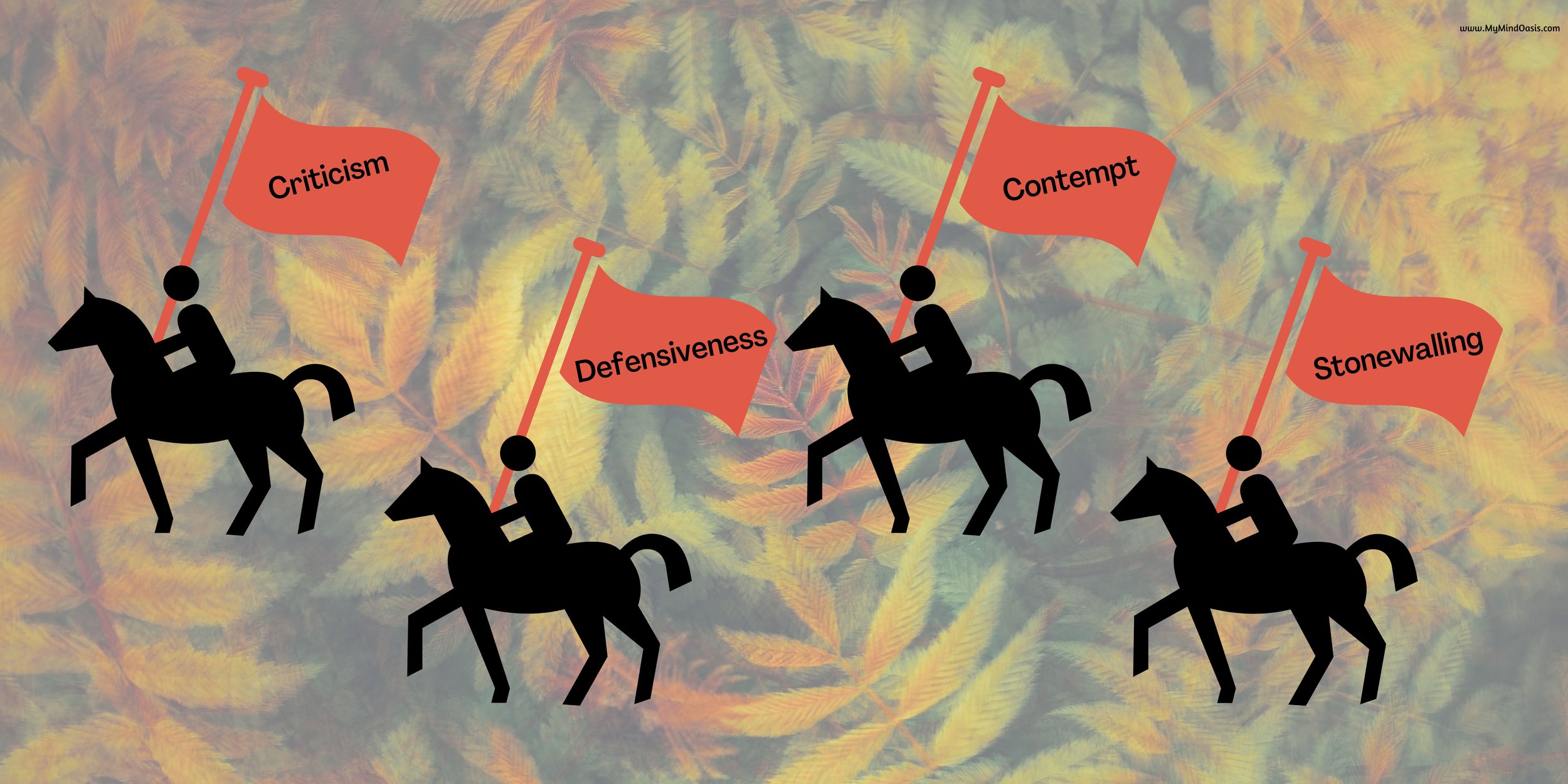In relationship counselling sessions, I often see couples get caught up in some very unhelpful patterns. In this post, I am going to describe what Gottman calls the “Four Horsemen of Apocalypse”. Gottman uses the metaphor for end of times (from the New Testament) to describe communication styles that predict the end of a relationship.
You can also think of them as toxic ingredients which, when added to the relationship, make it unpalatable and unstable. So let’s take a look at these destructive behaviors - or the “Four Horsemen of Apocalypse”, namely: criticism, defensiveness, contempt and stonewalling.
1 Criticism
When you voice a complaint in a way that attacks your partner, making it global rather than situation specific, you are falling into the trap of criticism. This includes any statement starting with “you always” or “you never”. Such comments question the very core of a person’s character. Let’s look at come examples of criticism:
“You never think about me.”
“You don’t know how to prioritize your family.”
“How can you be so careless?”
“Why are you so insensitive?”
“You always humiliate me!”
Naturally, such criticism will elicit defensive responses, often leading the couple into deeper and deeper sense of disconnection.
2 Defensiveness
The second horseman often appears in response to the first one. So you might respond to your partner’s criticism by taking a defensive stance in order to save yourself from pain. It might sound like:
“What about the time when you did that?”
“You could have reminded me again.”
“What about everything that I do for you?”
Even though it is meant as protection from perceived attack, the distinctive feature of defensiveness is that you seek comfort by assigning blame to the other person. This includes deflecting and denying responsibility, or assuming that the goal is figuring out which one of you is to blame (and of course, each thinks the blame lies with the other!). In doing so, you end up pushing each other farther away, often giving rise to contempt.
3 Contempt
The third - and perhaps the deadliest - horseman is contempt. In this state, one functions from a moral high ground, assuming themself as better than the partner. It is a step beyond criticism. While criticism brings the person’s character into question, contempt seeks to make them feel small and worthless.
It can be expressed both verbally and non-verbally. Speaking in a mocking or demeaning way, calling names and sarcastic comments convey contempt. It is extremely corrosive, even in the absence of words. A ‘look of contempt’ such as through rolling of eyes, assumes a position of superiority.
4 Stonewalling
This fourth horseman - stonewalling - appears when the listener in the conversation feels too flooded to engage or respond. Typical expressions of engagement such as nodding, eye contact, brief vocalization’s (like “hmm” or “uh huh”) and facial movements are absent. Instead, the stonewaller may look down and away, keep a rigid facial expression and hardly make any vocalizations. It is obvious that this makes feeling close or connected to your partner impossible. Addressing and resolving conflict seems impossible too. When one or both partners feel safer stonewalling than connecting, it can be disastrous for the relationship.



